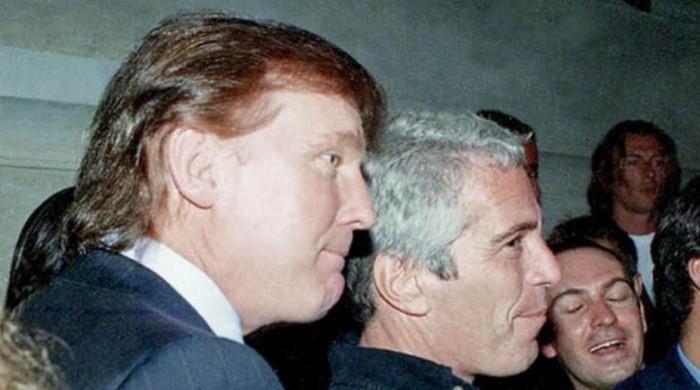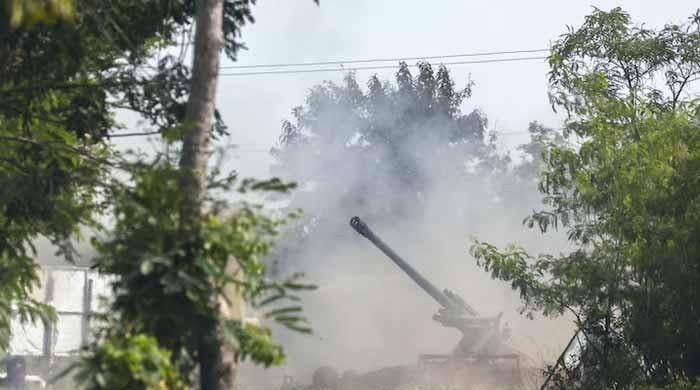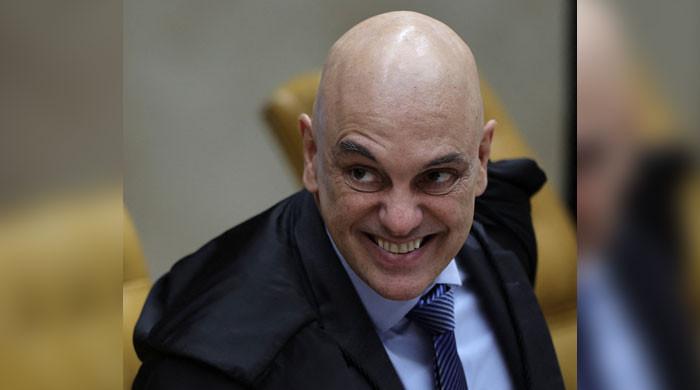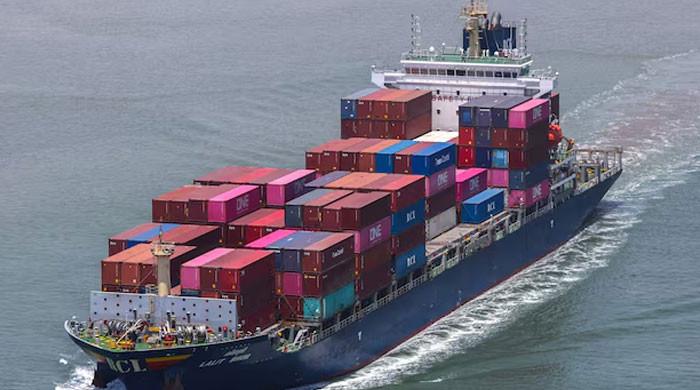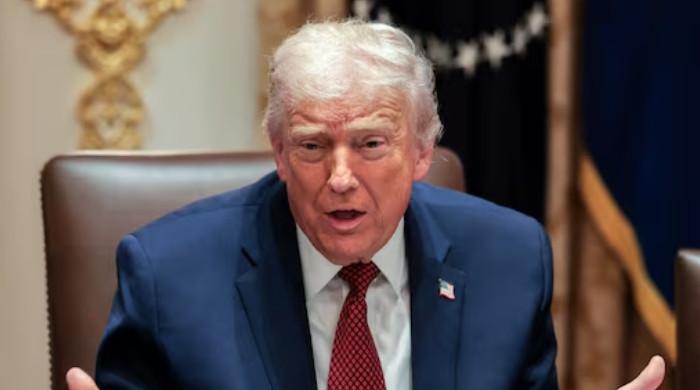Pakistan, India, China 'encouraged' Karzai to sign US-Afghan pact: Dobbins
WASHINGTON: A senior US official has said that Chinese President Xi Jinping, Pakistani Prime Minister Nawaz Sharif, and Russian President Vladimir Putin are among the leaders who have encouraged...
December 11, 2013
Testifying before a Senate committee Tuesday, James Dobbins, the US Special Representative on Afghanistan & Pakistan voiced confidence that Afghanistan would eventually complete an agreement for some 12,000 US troops to stay after 2014, despite Karzai's insistence that he will leave the decision to his successor.
He said that all regional powers -- except Iran -- had encouraged Karzai to sign the accord, which would authorize US troops to keep training Afghans after next year's official withdrawal of combat forces first sent in 2001 following the September 11 attacks.
"Several of these leaders are no fans of an American military presence in Central Asia, but all recognize that without continued international military and economic support, Afghanistan risks falling back into civil war," Dobbins said.
Such a war would lead to a "rise in extremist groups, outflow of refugees and disruptions in commerce that would threaten the region as a whole," Dobbins said.
He expressed hope that India would persuade Afghan President Hamid Karzai to sign a deal allowing US troops to stay, as lawmakers voiced outrage at the delay.
"His upcoming visit to India could, I think, be quite influential, because he highly respects and has good relations with the Indian government," said Dibbins.
Karzai visits India later this week.
India, where Karzai studied, has enthusiastically supported the US military role and poured $2 billion in reconstruction aid into Afghanistan, whose former Taliban regime sheltered virulently anti-Indian militants and was allied with New Delhi's historic rival Pakistan.
Defense Secretary Chuck Hagel also said on a weekend visit to Kabul that he received assurances that Afghanistan would eventually sign the Bilateral Security Agreement, which lays out future rules for foreign troops including limits on raids on homes.
Karzai initially endorsed the deal but later said the signature could take place only after the presidential election in April, warning against a NATO presence if it just meant "more bombs and killings."
"To the Americans, I say: why must the Afghan people pay the price for this war on terrorism?" Karzai told the French newspaper Le Monde in an interview published Tuesday.
His stance has outraged US officials and lawmakers, who have threatened a complete pullout if Karzai does not sign by the end of the year.
"This brinksmanship is unwarranted and, frankly, insulting to the sacrifices made by the United States military and taxpayers, and is not in Afghanistan's best interest," said Senator Robert Menendez, a member of President Barack Obama's Democratic Party and chairman of the Senate Foreign Relations Committee.
Senator Bob Corker, the top Republican on the committee, accused Karzai of "flakiness" and of being an "irrational and irresponsible partner."
Dobbins said that Karzai was likely seeking to maintain leverage and was calculating that the United States would keep troops in Afghanistan no matter what.
"We try to tell him that American opinion isn't exactly where he thinks it is and that he is playing with fire," Dobbins said.
Opinion polls have shown that the US public is eager to end the country's longest-ever war, which has killed more than 2,000 US troops.
In 2011, the United States withdrew from Iraq after failing to secure a similar troop agreement at the end of a separate, more controversial war. (AFP)




